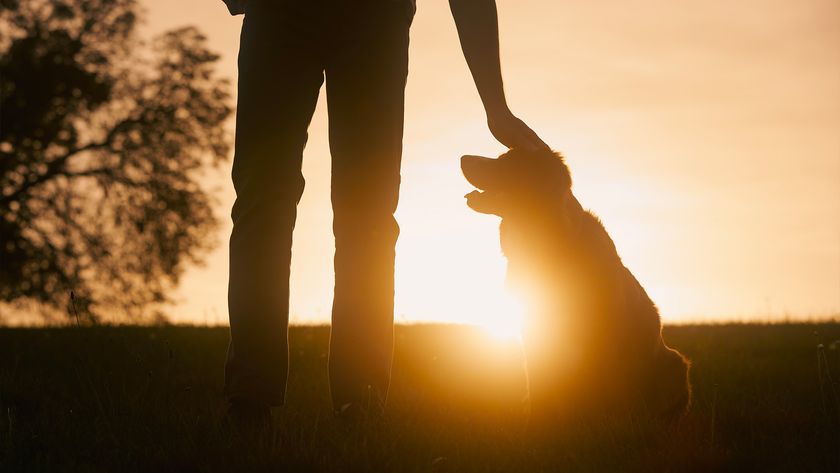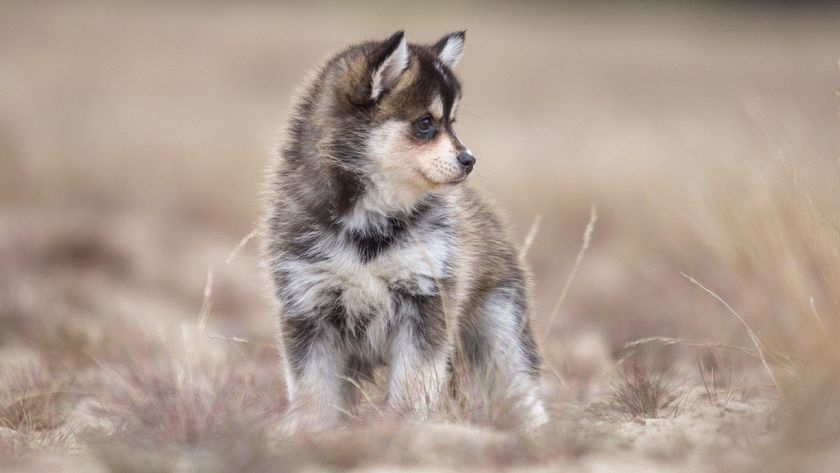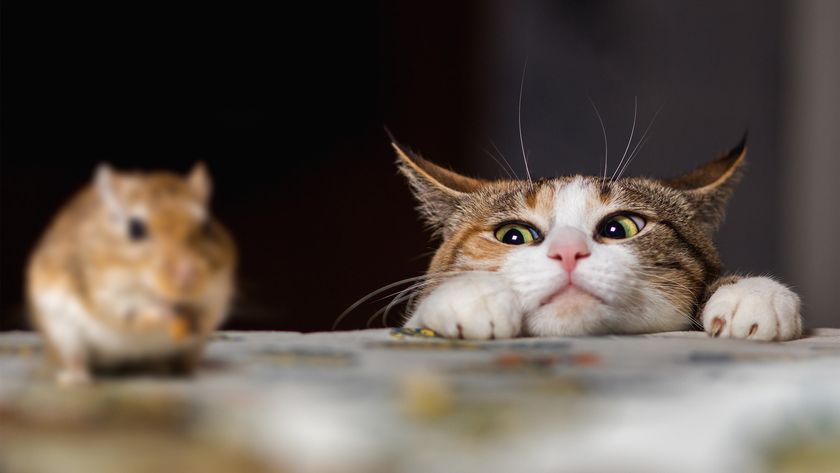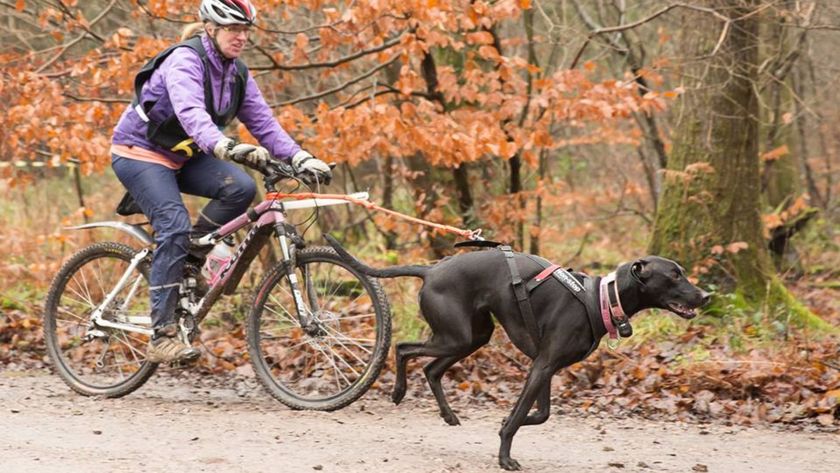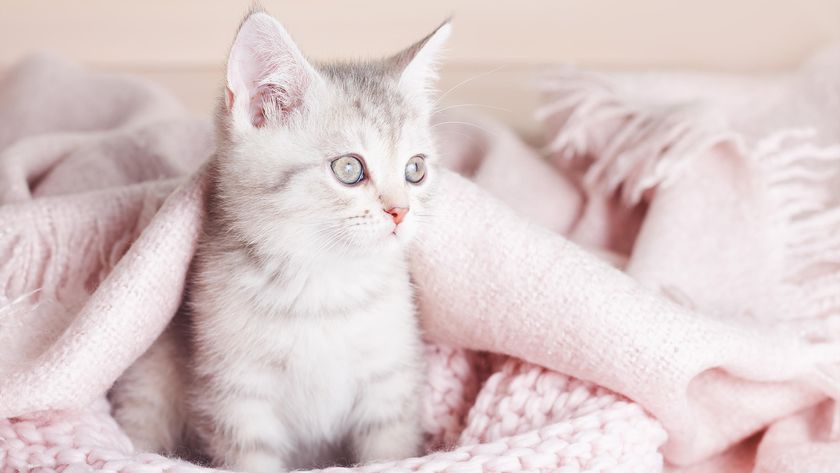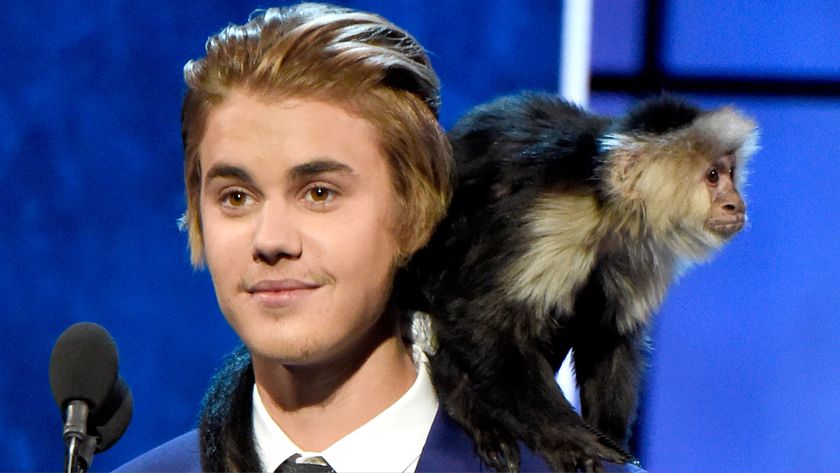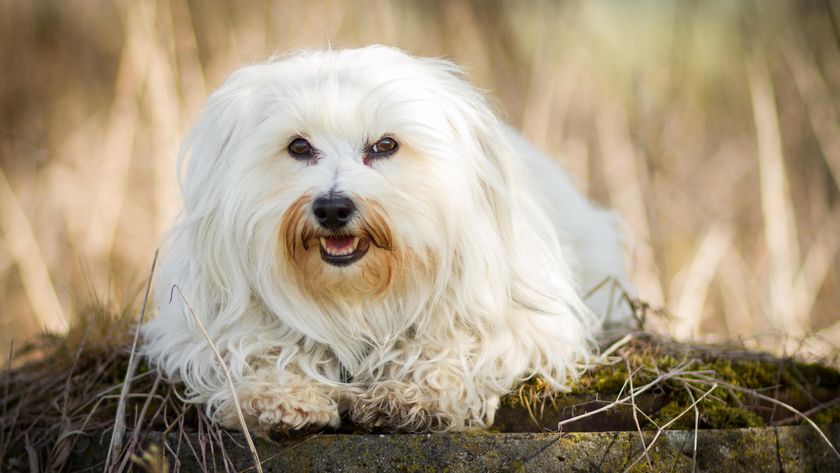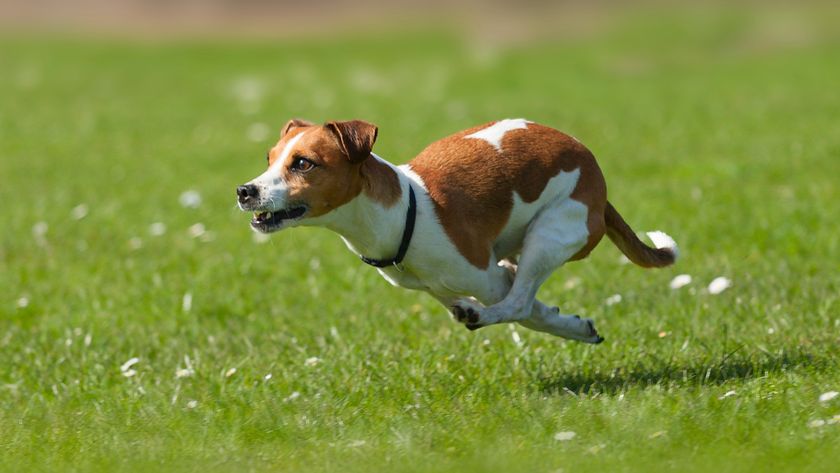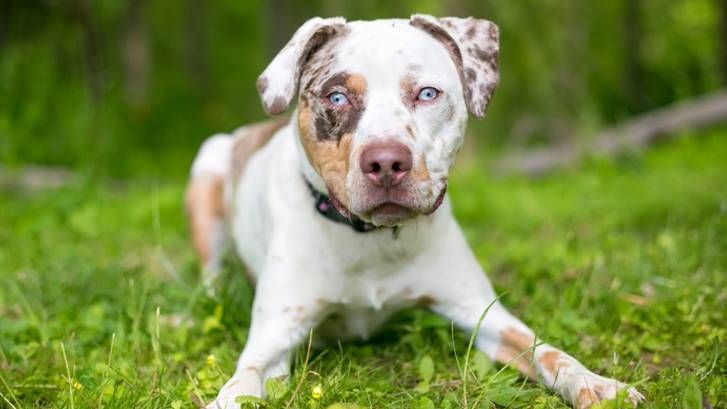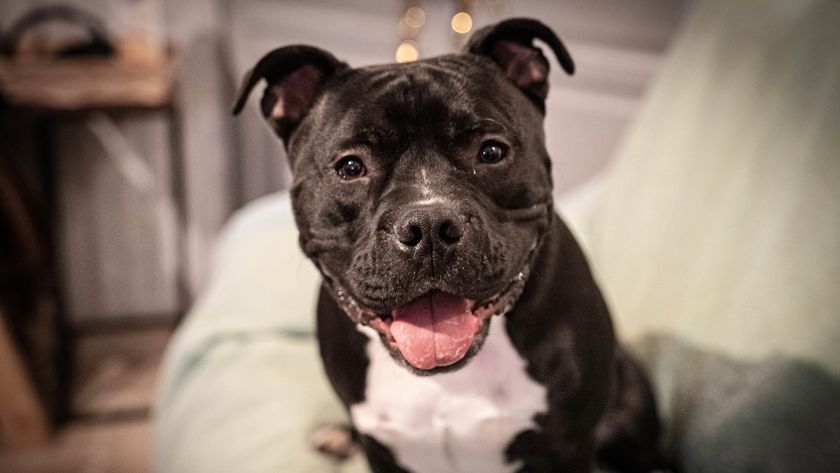16 speedy sighthounds and what you need to know about them
We take you around the world with 16 sighthound breeds, revealing their similarities and differences
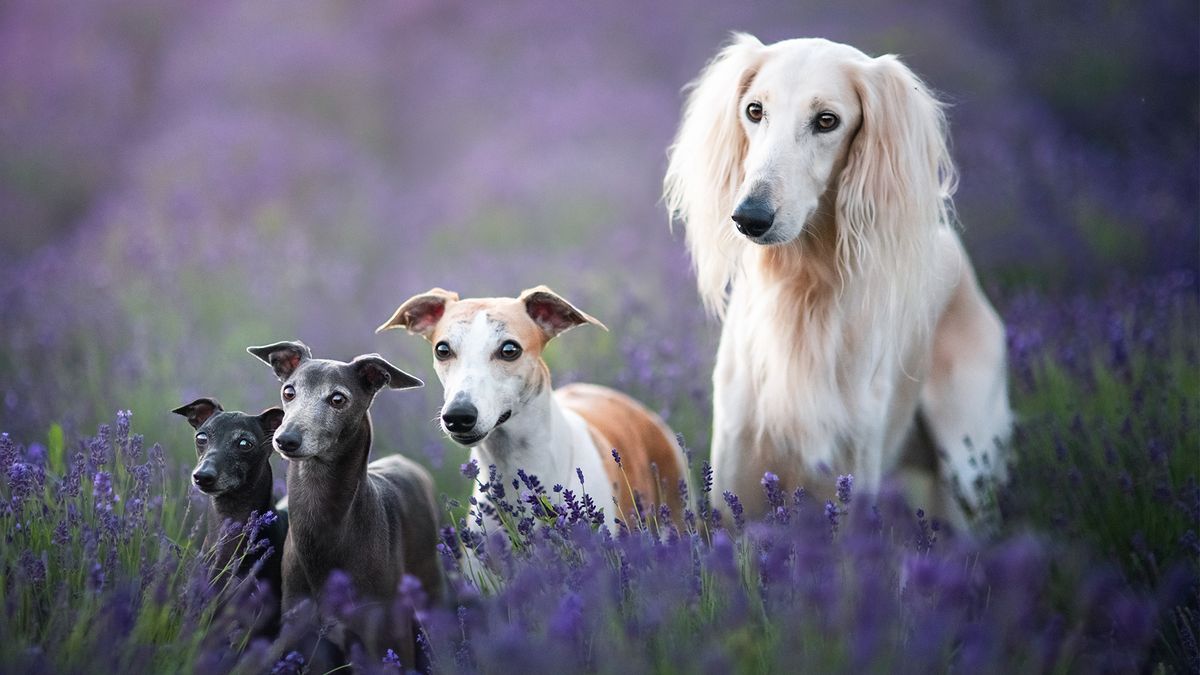
You’ve probably met a sighthound, even if you’re not sure what the term means.
“A sighthound is defined as a type of hound that hunts by keen eyesight rather than smell,” says companion animal vet Dr Rebecca MacMillan. “These working dogs are built for speed so they should be slender and agile. Their job is to keep prey within their sight, so this means being able to chase and keep up with it, which makes them some of the fastest dog breeds.
“Sighthounds are dolichocephalic meaning they have long pointed muzzles, matching their streamlined bodies,” she adds. “They have a narrow but deep chest that houses a large heart and efficient lungs. This is essential for being able to get enough oxygen to muscles around the body when putting their long, slender legs to work during their bursts of strenuous exercise.”
If you look at old paintings depicting members of the British aristocracy hunting on horseback, you’re likely to see at least one sighthound accompanying them. Hunting with sighthounds is generally called coursing, and relies on the excellent vision of the dogs rather than its ability to track by scent (like a scent hound).
Nowadays, sighthounds in the US and UK are mostly kept as pets but, across the world, some breeds are still regularly used to chase down prey, in racing or the sport of lure coursing (where they chase artificial prey at speed).
So, what breeds fall into the category of sighthound? Read on to see our comprehensive list of sighthound breeds...
Sighthound breeds
1. Greyhound

The most famous and arguably most beloved of all sighthound breeds, the greyhound is the fastest dog on the planet.
PetsRadar Newsletter
Get the best advice, tips and top tech for your beloved Pets
While many countries have their own breed of “greyhound”, when we think of a traditional greyhound (the kind that is used for dog racing) it’s the English Greyhound we picture. They are loyal, loving and make great family pets!
2. Irish Wolfhound
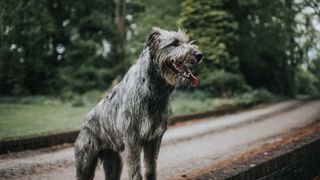
One of the biggest dog breeds in the world, the Irish Wolfhound is known for its classical good looks and long wiry coat.
Traditionally used as guardian dogs or to hunt wolves (hence the name) these gentle giants make great family pets, if you’ve got the room for them!
3. Scottish Deerhound
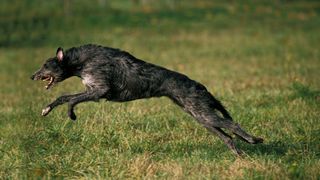
Similar in appearance to the Irish Wolfhound, the Scottish Deerhound is a little smaller and slimmer, although still larger than their Greyhound cousins.
This Scottish dog breed was originally bred to hunt red deer (the largest type of deer found in the UK), although now they are more often found snoring on a sofa than chasing large prey.
4. Saluki
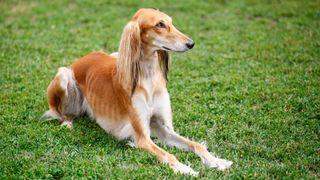
The saluki is one of the oldest breeds in the world, also known as the Royal Dog of Egypt and traditionally used by nomadic peoples across North Africa and Western Asia to chase down game animals.
Compared to the Greyhound, salukis are a little on the thinner side, with long coats and signature floppy ears that beg to be petted.
5. Afghan Hound
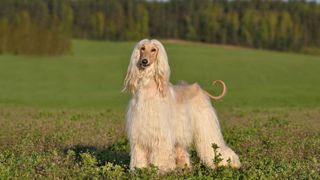
From the same region of the world as the saluki and tazy, the Afghan Hound is distinguishable by their long silky coats, ending in a curly tail.
They are a loyal and somewhat aloof breed with high grooming requirements, but like all sighthounds, they are known to have a goofy, clownish streak that can be very entertaining.
6. Sloughi (Arabian Greyhound)
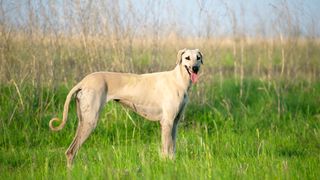
Heading southwest from Afghanistan, the sloughi, or Arabian Greyhound, is another ancient sighthound breed. It can be found primarily in Algeria, Tunisia, Morocco and Libya.
Ancient Algerian art depicts a very similar looking dog with droopy ears, long snouts and the sighthound build, indicating the ancestors of the modern sloughi roamed the area for millennia before the breed was classified.
7. Azawakh
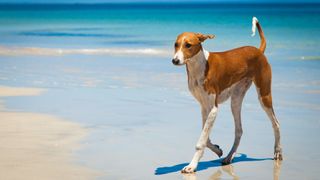
A West African sighthound breed, the Azawakh is another ancient breed found in Mali, Niger and Burkina Faso. Named for the Azawakh valley, this dog historically lived a nomadic life with the tribes of the Sahara.
Their long legs and short, smooth coat make them similar in appearance to the greyhound, but if you look closely, you can see they are leggier and tend to have even more prominent hip and shoulder bones.
8. Whippet
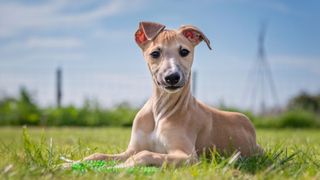
Not sure you have the space for a greyhound? That’s OK, it comes in mini. The Whippet really is a greyhound in miniature: generally standing between 18–20 inches at the shoulder, these little dogs are gentle and sometimes prone to “whippet-y worries.”
Due to their stature and slim frame, they can feel the cold, so you will often see them dressed up in snoods and jumpers to keep their ears warm.
9. Italian Greyhound
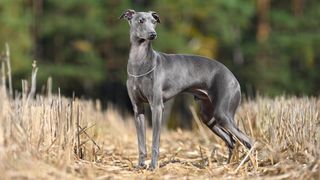
If the whippet was still too large for you, the Italian Greyhound is an even smaller model, with adults weighing up to 5kg.
When compared to the Whippet, there aren’t many differences beyond size. They are similar in temperament, sometimes suffer from separation anxiety and have the signature deep chest and narrow head typical of a sighthound.
10. Borzoi (Russian Sighthound)
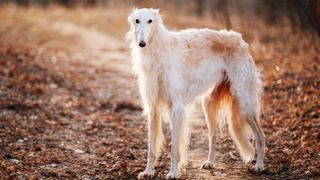
The Borzoi is the noble, long-haired sighthound breed of Russia. Traditionally used to hunt wolves, they are large-breed dogs with remarkably long snouts and big eyes.
You can see their relation to other long-haired sighthounds like the saluki, Afghan Hound and Kyrgyz Taigan, and it is likely that these breeds share an ancient common ancestor somewhere down the line.
11. Basenji
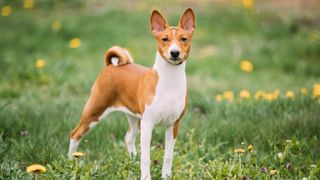
The Basenji is touted as Africa’s barkless dog. That’s not to say they’re silent (far from it, in fact!) but, rather than bark, they make noises rather like chattering and yodelling.
They are a medium dog breed, standing at around 16 inches to the shoulder and are said to be as old as the pyramids, dating back some 4500 years.
12. Rhodesian Ridgeback
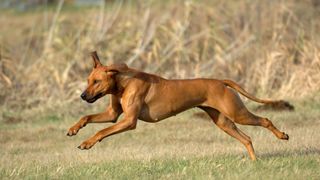
Characterized by a short coat that forms a long ridge down the spine, the Rhodesian Ridgeback is also known as the African Lion Dog.
They are powerful hunting dogs with a high exercise need, but they have a soft, gentle side. They stand at around 25 inches to the shoulder and, though large, can be wary of strangers, so ongoing socialization is a must.
13. Portuguese Podengo Pequeno
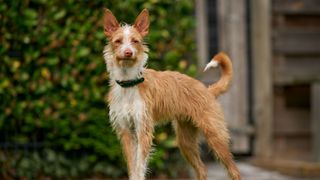
This small European hunting dog has a sighthound build with wiry hair like an Irish Wolfhound.
It is the sighthound that most resembles a terrier breed and, like a terrier, loves to chase rabbits and small rodents. A playful and alert little dog, they grow up to 12 inches tall and weigh up to 13 pounds.
14. Pharaoh Hound
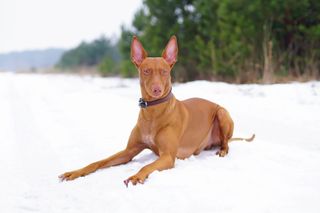
This graceful dog comes from Malta, and was known as the Maltese Rabbit Dog. However, lovers of the “rebranded” in the 1960s to make this slight and svelte dog sound more regal in nature.
The Pharaoh Hound has a strong prey drive that can make holding their attention can be a challenge, and unlike other sighthounds they can be very vocal. They are extremely agile and capable of running long distances, but once they are all tuckered out they love nothing more than chilling with their family.
15. Ibizan Hound
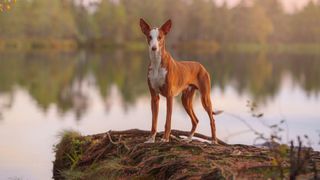
Similar in look to the Pharaoh Hound (and likely developed from it) the Ibizan Hound was bred to course rabbits on Spain’s Mediterranean coastal islands, the Balearics.
Like the pharaoh hound, they are super-fast sprinters and natural hunters – once they’re in hot pursuit of game there isn’t much talking to them!
16. Cirneco dell’Etna
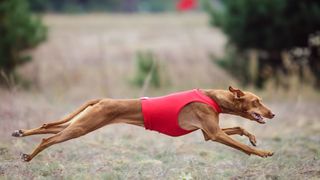
The sleek Cirneco dell’Etna is another Mediterranean hound breed from Sicily. Still closely linked to their original purpose as rabbit catchers, the Cirneco dell’Etna will soon be on the hunt when left to its own devices.
That said, they are highly sociable, especially with people, but socializing as a puppy and ongoing socialization is important to ensure they are confident meeting dogs and other animals of all kinds.
Common sighthound crosses
Lurcher
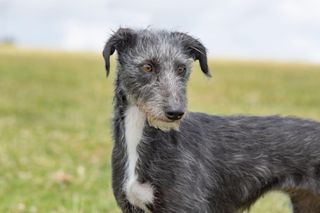
Lurchers are generally a cross between a greyhound or other sighthound breed and a collie, bully breed or terrier, making a sturdy, versatile dog with some of the characteristics of a sighthound and of the breed they have been mixed with.
A common example is the Bedlington Whippet – a cross between a whippet and Bedlington Terrier that creates a broken coated dog that looks remarkably like a miniature wolfhound (pictured above).
American Staghound
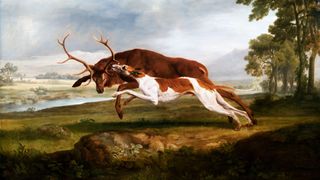
Staghounds are sometimes called the “American Lurcher” – although unlike the Lurcher, are generally a mix of several sighthound breeds without the input of collie, terrier or bully.
Often rough coated due to wolfhound and deerhound in their lineage, they are also generally of Borzoi and greyhound descent.
Longdog
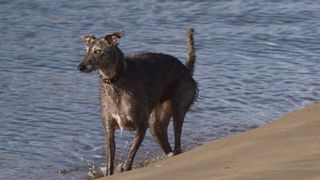
A longdog is considered to be a cross between a greyhound and any other sighthound breed, such as Scottish Deerhounds or salukis. The aim is to incorporate the desirable trait of the second breed, for instance: the size or broken coat of an Irish Wolfhound or silky coat of a Borzoi.
Caring for sighthound breeds
Sighthounds love to run, and the ability to reach top speed for short bursts every day is important for them.
“Sighthounds need the opportunity to run freely off the leash,” says Dr MacMillan. “However, they have a very high prey drive meaning they will chase after squirrels, rabbits, or even cats. This means you must ensure that you work on your pet’s recall training from an early age and continue to practice it regularly.”
Owners struggling to train sighthounds needn’t worry – there are alternatives.
“If you can’t trust your dog’s recall then you should only ever exercise them in a secure area, to stop accidents from happening.
“Exercise-wise, these dogs are built for short bursts of high-intensity exercise, they are not endurance dogs. So, it can surprise many people that sighthounds only require moderate amounts of exercise per day and are happy balancing this out with plenty of sofa naps!”
Owners of sighthound breeds must also pay close attention to their paws.
“Sighthounds are prone to corns on their paw pads, especially greyhounds,” explains Dr MacMillan. “Make sure you check their feet regularly for any abnormalities on their pads and take them to a vet for treatment if you notice any discomfort or limping.”
Some sighthound owners may find they need to get creative when it comes to training.
“Sighthounds can be stubborn and not as food motivated as some other breeds of dog, which may make training a little tricky for novice owners. But they are hard workers and eager to please, so try and work out what motivates your dog the most.
“High-value dog treats or getting to play with a stuffed animal as a reward may work well. Training recall can be tricky, so plenty of practice on a long line leash and in a secure space is essential.”

Dr MacMillan is a companion animal vet who has always had a passion for writing and client communication. She works in the South West and loves complex medical cases.

Bethany is an experienced writer who has been writing across the pets and equestrian sector for eight years.
Edited by Georgia Guerin.
Recent updates
This feature was last updated on March 21, 2025 by Bethany Stone.

Bethany is an experienced news and features writer with an equestrian specialism, and has been writing for internationally recognised titles, such as Horse & Hound magazine where she is currently features assistant, since 2017.
Prior to her career in journalism, she studied BA English at the University of Nottingham, where she graduated with a first class degree.
As well as cultivating a vast and far-reaching understanding of equine training and management, her first-hand pet care experience also ranges from dogs and rabbits to chickens and sheep.
She’s also volunteered at greyhound rescue centres by walking their four-legged residents.
When she isn’t writing, she's kept busy by her two horses and cocker spaniel, Matilda, who’s a dab hand at dog agility and loves performing her favourite party trick – weaving between her human’s legs as she walks.
- Lou MudgeWriter
